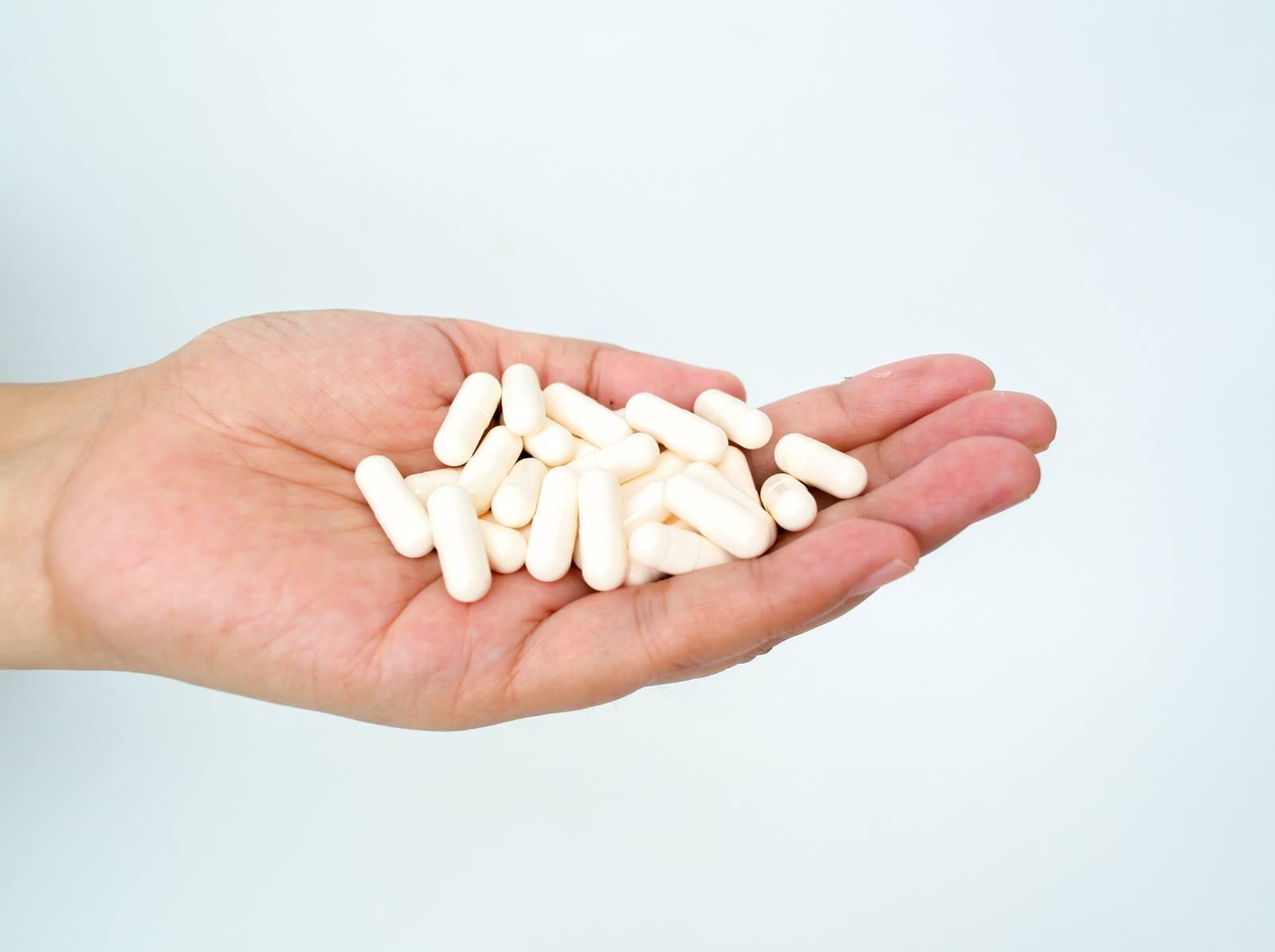People take supplements to improve or optimize their health. So what happens when you look at the label, and the ingredient list is filled with unrecognizable additives?
Article Summary
Glutathione is a powerful antioxidant used by the body to protect against cellular and tissue damage.
Studies suggest that glutathione supplementation can augment the body’s glutathione stores and support immune function.
Glutathione supplementation can provide nutritional support for a wide variety of health conditions, including Parkinson’s disease, gastrointestinal disorders, and autism spectrum disorder, while also supporting healthy aging.

Over the last few years, glutathione supplements have been appearing on store shelves and health food websites. So what are the benefits of glutathione supplementation? Does it really help? Whenever a hot new supplement like glutathione hits the market, it is important to consider the research before jumping on the bandwagon.
An abundance of in vitro research supports the use of glutathione. Although there is still a relative lack of large-scale clinical studies on the benefits of glutathione for specific health problems, early research suggests that glutathione might provide nutritional support for a wide variety of health conditions, from neurological health to skin health.
The Basics of Glutathione: What is it and what are its Benefits?
What Is Glutathione?
Glutathione is a low-molecular-weight, water-soluble tripeptide consisting of three amino acids: glycine, cysteine, and glutamic acid. It exists in two forms: the reduced form (GSH) and the oxidised form (GSSG). It is the ratio between these two forms that determines its capacity for antioxidation.
Glutathione is one of the most abundant compounds in cells. Under normal conditions, the concentration of glutathione is comparable to that of glucose, potassium, and cholesterol, a fact that highlights its importance in supporting healthy cell function.
The Benefits of Glutathione
Antioxidant Functions
In vitro research on the benefits of glutathione indicates that it plays a variety of beneficial roles in cellular function, primarily through its activities as an antioxidant. Glutathione neutralises several different types of free radicals that can cause cellular and tissue damage, including singlet oxygen radicals, hydroxyl radicals, and superoxide radicals. Glutathione also plays a detoxifying role by neutralising the free radicals that are produced during the first phase of liver metabolism.
These antioxidant activities do not just occur in the cytosol; they are also crucial to the functioning of mitochondria (the organelles involved primarily in cell energy generation) and the protection of mitochondrial DNA from damage. This beneficial connection between glutathione and mitochondrial function is significant due to the role of the mitochondria in cellular longevity and metabolism—two crucial aspects of health maintenance.
Cofactor to Other Antioxidants
The antioxidant activities of glutathione go beyond its direct function as an antioxidant. Glutathione also serves as an essential cofactor for several antioxidant enzymes, which means that its presence is necessary for these enzymes to carry out their own antioxidant activities. Additionally, glutathione is a necessary component of the regeneration pathways for two other major antioxidants: ascorbate (vitamin C) and tocopherol (vitamin A).
Aiding Detoxification
Glutathione is also involved in detoxification processes. For instance, in the second phase of liver metabolism, glutathione is required for the conjugation of toxic intermediates, rendering them sufficiently water-soluble for excretion by the kidneys. Another detoxifying activity of glutathione is the removal of mercury from cells throughout the body, including neurons in the brain. In vitro studies also suggest that glutathione aids in detoxification processes after overexposure to toxic chemicals like paraquat, iron, and hydrogen peroxide.
The Effectiveness of Glutathione Supplementation
The potential benefits of glutathione are impressive. As with any compound, patients and practitioners must recognise that a supplement might not necessarily have clinically relevant benefits. However, the existing evidence suggests that taking glutathione in supplemental form can have a positive effect on overall patient health.
In 2015, researchers from Penn State University conducted a randomised, double-blinded, placebo-controlled trial to determine whether oral glutathione supplementation increased glutathione stores in participants’ cells. The sample included 54 healthy adults who received either a placebo, a daily supplement of 250 mg of glutathione, or a daily supplement of 1,000 mg of glutathione.
The researchers found statistically significant increases in glutathione stores in both glutathione treatment groups after the 6-month study period. This study was the first-ever demonstration that daily supplementation can lead to higher stores of glutathione in the body.
Importantly, the researchers also observed multiple improvements in immune function, including a twofold increase in natural killer cell cytotoxicity in patients who took the higher dose of glutathione. This indicates that supplementation can have clinically significant beneficial effects that directly impact patient health outcomes.
When it comes to the effectiveness of glutathione supplementation, its naturally low bioavailability is an important concern for both researchers and supplement developers who are interested in the potential health benefits of glutathione supplementation. With recent improvements in delivery technology, researchers have successfully developed innovative systems that enhance the absorption of oral glutathione supplements. By choosing a supplement optimised for bioavailability, patients can maximize the impact of glutathione supplementation.
Opportunities for Future Research on the Benefits of Glutathione
Thanks to the well-documented antioxidant, detoxifying, and other cell regulatory activities of glutathione, there is growing interest in exploring its impact on specific health conditions and general wellness. Here are several of the most promising findings:
- Glutathione supplementation might offer nutritional support for patients with Parkinson’s disease.
- There are multiple ways in which glutathione might support cognitive function.
- By supporting immune cell function, glutathione might help promote immune health.
- Glutathione’s ability to support healthy aging has been demonstrated through multiple studies on skin health.
- Sports science researchers are exploring ways in which glutathione supplementation might help alleviate muscle fatigue.
- For patients with certain stomach problems, glutathione might help support the integrity of the gastrointestinal tract.
- Glutathione might help support behavioral and physiological health in autistic individuals.
As researchers continue to call for more comprehensive clinical trials on the potential health benefits of glutathione, practitioners and their patients will more fully understand how to harness the wide-ranging activities of this unique compound to support health. Even now, it is possible to take advantage of the existing research and experience the benefits of glutathione supplementation today.
The power of Tesseract supplements lies in the proprietary science of proven nutrients and unrivaled smart delivery, making them the most effective for supporting healthy aging and immune health.
- Allen J, Bradley RD. 2011. Journal of Alternative and Complementary Medicine. 17(9):827-33.
- Aoi W, Ogaya Y, Takami M, et al. 2015. Journal of the International Society of Sports Nutrition. 12:7.
- Chan AC. 1993. Canadian Journal of Physiology and Pharmacology. 71(9):725-31.
- Droge W, Breitkreutz R. 2000. The Proceedings of the Nutrition Society. 59(4):595-600.
- Mari M, Morales A, Colell A, et al. 2009. Antioxidants and Redox Signaling. 11(11):2685-2700.
- Meng Q, Velalar CN, Ruan R. 2008. Rejuvenation Research. 11(3):649-60.
- Pizzorno J. 2014. Integrative medicine: A clinician’s journal. 13(1):8-12.
- Richie JP, Nichenametla S, Neidig W, et al. 2015. European Journal of Nutrition. 54(2):251-63.
- Schmitt B, Vicenzi M, Garrel C, Denis FM. 2015. Redox Biology 6:198-205.
- Singh S, Khan AR, Gupta AK. 2012. Journal of Experimental Therapeutics and Oncology. 9(4):303-16.
- Traverso N, Ricciarelli R, Nitti M, Marengo B, Furfaro AL, et al. 2013. Oxidative Medicine and Cellular Longevity.
- Uchida H, Nakajima Y, Ohtake K, Ito J, Morita M, Kamimura A, Kobayashi J. 2017. World Journal of Gastroenterology. 23(36):6650-64.
Share:
Related Posts

Why Would I Test Positive To Foods On A Dietary Antigen Test That I Don’t Eat?
Written by Precision Point Diagnostics | 2025 True food allergies are when the body develops antibodies against a particular food, or a related food. Patients

Mitochondria: The Overlooked Link in the Gut-Brain Axis
Written by Dr Sarah Daglis | 2025 The gut-brain axis is well-established, but there’s more to this dynamic relationship than meets the eye. A vital

Unlocking Respiratory Resilience Through Functional Medicine
Article written by Dr Michelle Clark Naturopathic Doctor Clinical Education Manager, FxMed Published 1 September 2024 People take supplements to improve or optimize their health.

AHCC: Unlocking the Immune Intelligence of Shiitake Mycelia
Article written by Jessica Sanders BSc. (Psy), Dip Nat, Dip Med Herb Technical Projects, FxMed Published 1 September 2024 People take supplements to improve or

Life After Weight Loss Meds
Kathi Head, ND February 20, 2025 You would have to have been spending glorious hours lying on the beach on a desert island not to


